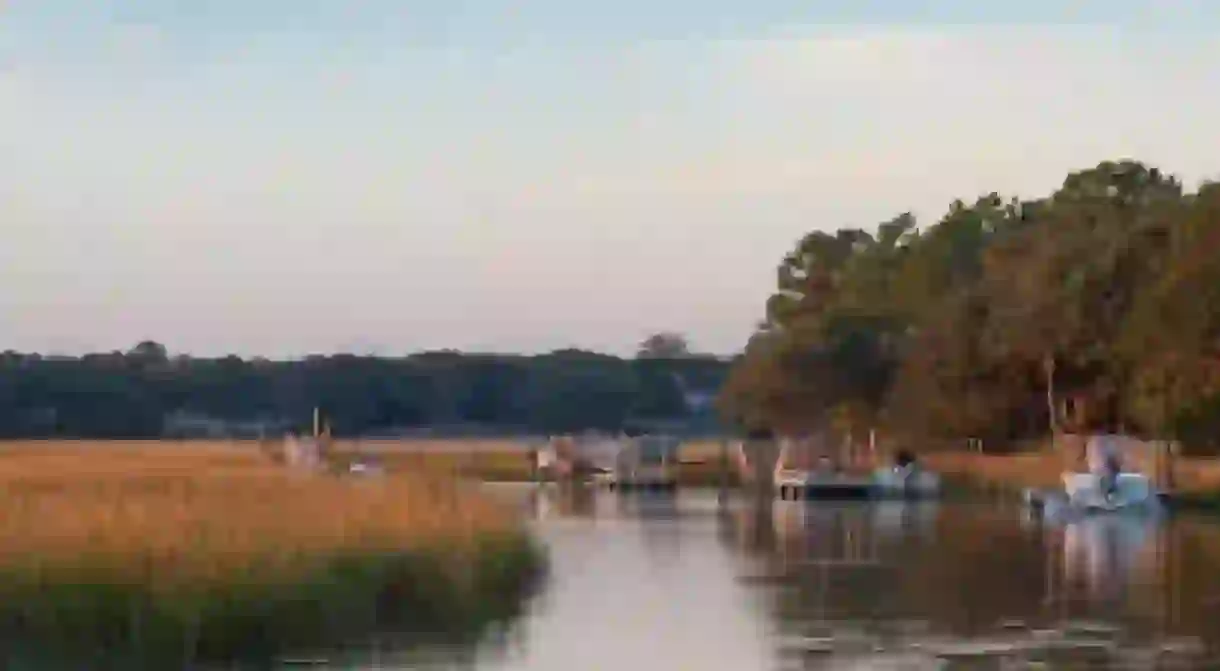5 Intriguing Facts About Seabrook Island

Located on the coast of South Carolina outside of Charleston, Seabrook Island’s pristine beaches and relaxed atmosphere attracts visitors from all over the country. However, Seabrook Island is far from being just another beach town. Unscathed wilderness, nationally recognized golf courses and a rich history make Seabrook Island a unique travel destination. Here’s our list of the top five intriguing facts about Seabrook Island that could inspire you to start packing your bags today.

Dolphins In Action
People aren’t the only ones who vacation on Seabrook Island: dolphins visit its beaches year-round. While dolphins can be spotted along the coast of the South Carolina Lowcountry, Seabrook Island is where visitors can witness an incredible, naturally occurring feat known as ‘strand feeding.’ Occurring seasonally between April and November, dolphins execute a strand feed by communicating through high pitch ‘whistles’ to work as a team and herd fish towards the shore, where they enjoy their fishy feast. Seldom seen in real life, visitors to Seabrook Island can sometimes witness an entire pod of dolphins right by the shoreline during a strand feed.

Live Oaks Live Here
Evergreen trees are typically found in the rolling hills of South Carolina’s upstate, but on Seabrook Island, live oaks line the roads—remaining ‘green’ all year long. In fact, the town of Seabrook Island has some of the most dense, sundry vegetation in South Carolina. Driving into Seabrook Island, the evergreen live oaks, some of which are more than 300 years old, are quickly followed by a variety of ferns and some of the area’s tallest palmetto trees, which tower overhead. Walking and bike paths weave throughout the island, but the untouched landscape makes every turn feel like you are off the beaten path.

Eco-Friendly Golf Courses
Seabrook Island’s golf courses are not only beautiful but also preserve the natural landscape and local wildlife. In 1996, Seabrook Island golf courses became the first in South Carolina to be certified by the Audubon Cooperative Sanctuary Program (ACSP) for golf. As a member of the ACSP, Seabrook Island upholds the standards of preserving the natural areas and wildlife habitats amongst the golf links. This dedication to both aesthetics and nature makes for both a challenging and picturesque golfing experience.

Preserving The Turtles’ Shell-Being
When visiting Seabrook Island, don’t be surprised if you spot a group of locals surveying the beach, not for seashells, but for turtles. Seabrook Island is home to a loyal group of over 150 volunteers who serve as a turtle patrol: searching out and protecting loggerhead turtle nests. During nesting season, adult loggerheads return to the same beach where they were hatched to lay up to 450 eggs at a time. However, these eggs are susceptible to encroaching tides and natural predators. To protect this threatened species, the volunteers comb the beaches from May through October to record and monitor the loggerheads’ nests, create barriers to protect against predators, relocate endangered nests, and document hatchlings.

Partial To Pirates
The history of Seabrook Island reaches back to pre-Colonial times: it was a point of contention in the Revolutionary War and has links to a man who was known to deal with pirates. The namesake of the town belongs to the family of Robert Seabrook, the ancestor of William Seabrook, who purchased the island in 1816. As the port city grew, it became an increasingly popular target for pirates. A businessman and politician, Robert Seabrook was once convicted of being in trade with the encroaching pirate presence. Seabrook Island itself has a history of being wild as a municipality. Despite its storied past, it is actually less than thirty years old, officially incorporated in 1987.

With so much to discover, the town of Seabrook Island promises a memorable experience for adventurers and nature enthusiasts.
By Hunter Gardner













